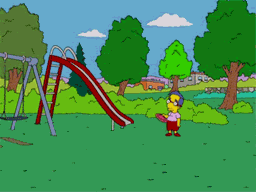In this post, we're looking briefly at the broader theme of God's restoration of fallen creation, and how resurrection fits into this plan. As always, this isn't an exhaustive look, but more of an overview of the subject in hopes to encourage reflection and further study.
When God first created all things, He proclaimed them “good.” Humans were given the responsibility of caring for the Garden and all living within it. However, Adam & Eve sinned, which damaged not only themselves, but the created order (see Gen 3:17-19). The created order as it presently stands is not the way it's supposed to be- full of decay and destruction.
God has, however, an overarching plan of redemption that includes creation itself. His plan is not simply to redeem individuals and fill heaven with their souls, but His intention is to restore creation (all of it) to what it was created to be. It was good, and it will be good again.
When we look at Romans 8:18-25, we see how God's plan of redemption for creation and mankind is tied together.
I consider that our present sufferings are not worth comparing with the glory that will be revealed in us. The creation waits in eager expectation for the children of God to be revealed. For the creation was subjected to frustration, not by its own choice, but by the will of the one who subjected it, in hope that the creation itself will be liberated from its bondage to decay and brought into the freedom and glory of the children of God. We know that the whole creation has been groaning as in the pains of childbirth right up to the present time. Not only so, but we ourselves, who have the firstfruits of the Spirit, groan inwardly as we wait eagerly for our adoption, the redemption of our bodies. For in this hope we were saved. But hope that is seen is no hope at all. Who hopes for what they already have? But if we hope for what we do not yet have, we wait for it patiently.
Notice that creation is suffering decay, but there will be a time when that will no longer be the case- when the children of God will be revealed. Creation awaits redemption as we ourselves await "our adoption, the redemption of our bodies." Notice that Paul says "redemption of our bodies" rather than "from our bodies." It is not God's act of saving our souls from our bodies that we are to long for, but the salvation of our entire being. Just as human sin ushered decay into the created order, human redemption (the resurrection of believers) ushers in liberation from that decay. (That is not to say, of course, that it is human effort that brings this about- it is God's redemption of mankind.)
We see this again in Revelation 22, where John describes the New Jerusalem. In vv1-5 John says,
Then the angel showed me the river of the water of life, as clear as crystal, flowing from the throne of God and of the Lamb down the middle of the great street of the city. On each side of the river stood the tree of life, bearing twelve crops of fruit, yielding its fruit every month. And the leaves of the tree are for the healing of the nations. No longer will there be any curse. The throne of God and of the Lamb will be in the city, and his servants will serve him. They will see his face, and his name will be on their foreheads. There will be no more night. They will not need the light of a lamp or the light of the sun, for the Lord God will give them light. And they will reign for ever and ever.
Now, even allowing for metaphorical and symbolic language, it is easy to see the theology of these verses. The comparisons to the Garden of Eden are obvious, but I want to point out two major things. First is the access to the tree of life. In Genesis 3:22-24 God denies Adam and Eve access to the tree of life "and eat and live forever." Expulsion from the Garden and denial of the tree of life are the climax of the curse against humans.
And that leads to the second important point: "No longer will there be any curse." The curse from Genesis 3 (incorporating humans and all of creation) is done away with. All of creation is renewed (and one could even say improved from Genesis 1-2). This is a picture of Paul's language from Romans 8- freedom from the bondage of decay.
In summary, God has a total plan of redemption, one that incorporates all of creation. The Lord will re-create, renew and restore what is broken. The resurrection of God's people ("the redemption of our bodies" in Paul's language in Romans 8) is a part- perhaps, one could say the key part- of that re-creation. We'll look a bit more at that point in the 3rd part of this series.









No comments:
Post a Comment